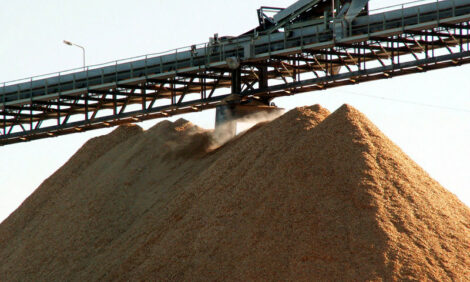



US Grain Exports To Continue Despite Korea's FMD
US - US exports to Korea may be slightly affected by a recent bout of foot-and-mouth disease (FMD), but not to the point of great concern, the US Grains Council said.On November 29, 2010, an outbreak of FMD was first detected in the Republic of Korea and has since spread throughout the country. With more than 100 confirmed cases, this outbreak marks the country’s worst battle with the disease since 2002, which resulted in the slaughtering of 160,000 head of livestock.
The Korean government, led by its Ministry of Agriculture, Forestry and Fisheries (MAFF), has been aggressively engaged, taking significant measures to halt the spread of FMD.
“The Korean government is taking this current outbreak very seriously,” said Byong Ryol Min, USGC director in Korea. “Last week, the government instructed all Korean feed millers and dealers to interrupt feed production and delivery for over 24 hours and implemented a full scale bio-security measure to mitigate or stop further outbreak of FMD.”
“According to news reports, about 1.5 million animals have been slaughtered thus far, including 120,600 head of cattle or 3.6 per cent of the country’s total inventory. About 1,375,000 hogs have been culled and 4,400 goats and deer. MAFF also decided to vaccinate 210,000 hogs in the infected concentrated hog farming areas.”
While the numbers may seem alarming, Min projected that if no further outbreaks occur in Korea this year, the nation’s total mixed feed consumption will be decreased by 2-2.5 per cent compared to 2010. While this is certainly an unanticipated, short-term disruption in Korea’s demand for feed grains, longer term demand for US grain remains strong.
“Korea imported 5.9 million metric tons (232.3 million bushels) of corn for feed use during January – November 2010, 5.4 million tons (212.6 million bushels) or 92 per cent of which came from the United States. The country also imported 1.9 million tons (74.8 million bushels) of corn for food and industrial use during that same period, of which 1.2 million tons (47.2 million bushels) or 64 per cent is from the United States,” he said.
“Considering the fact that Korea imported nearly 2 million tons of feed wheat during the first 11 months of 2010 and the fact that feed wheat prices will be quite strong in 2011, the disease alone may not badly affect Korea’s feed corn imports from the United States.”
TheCattleSite News Desk


